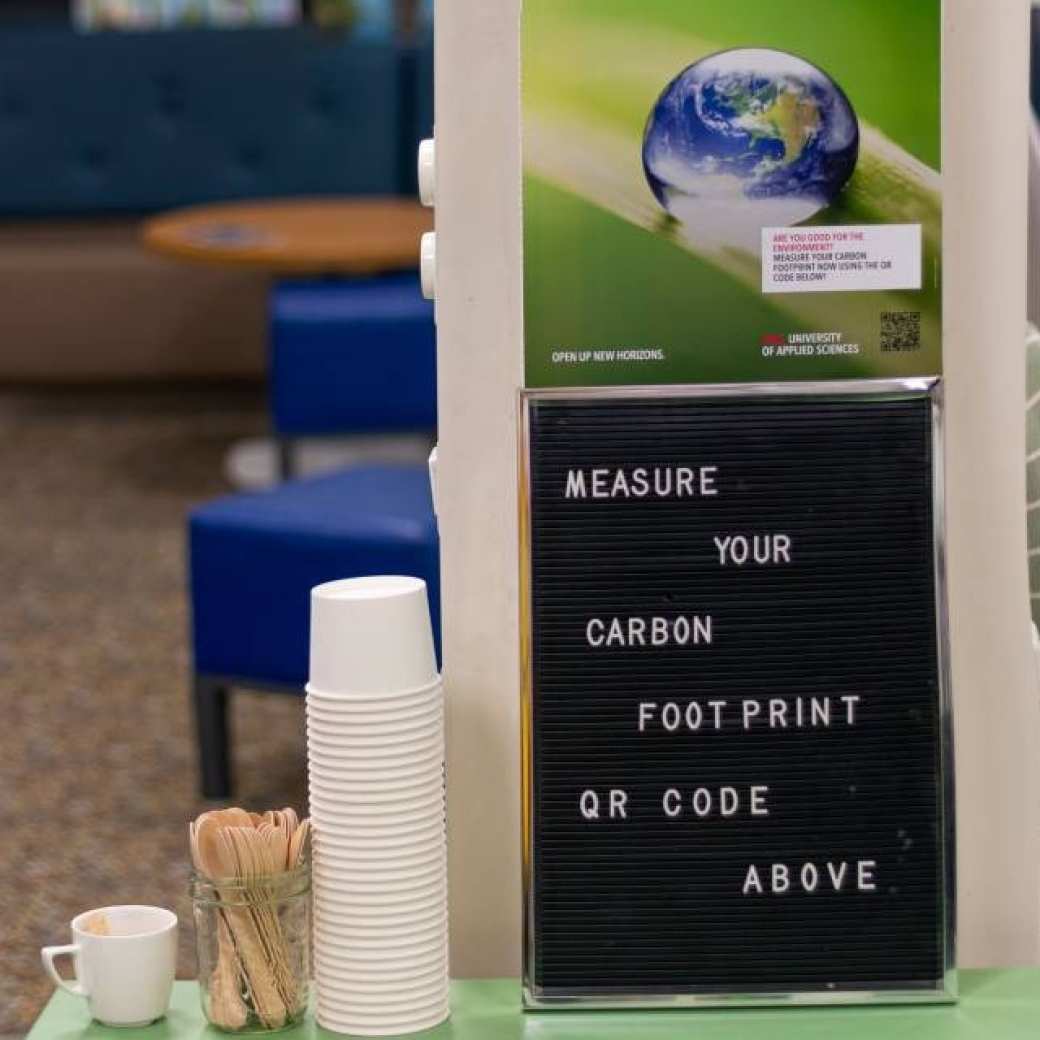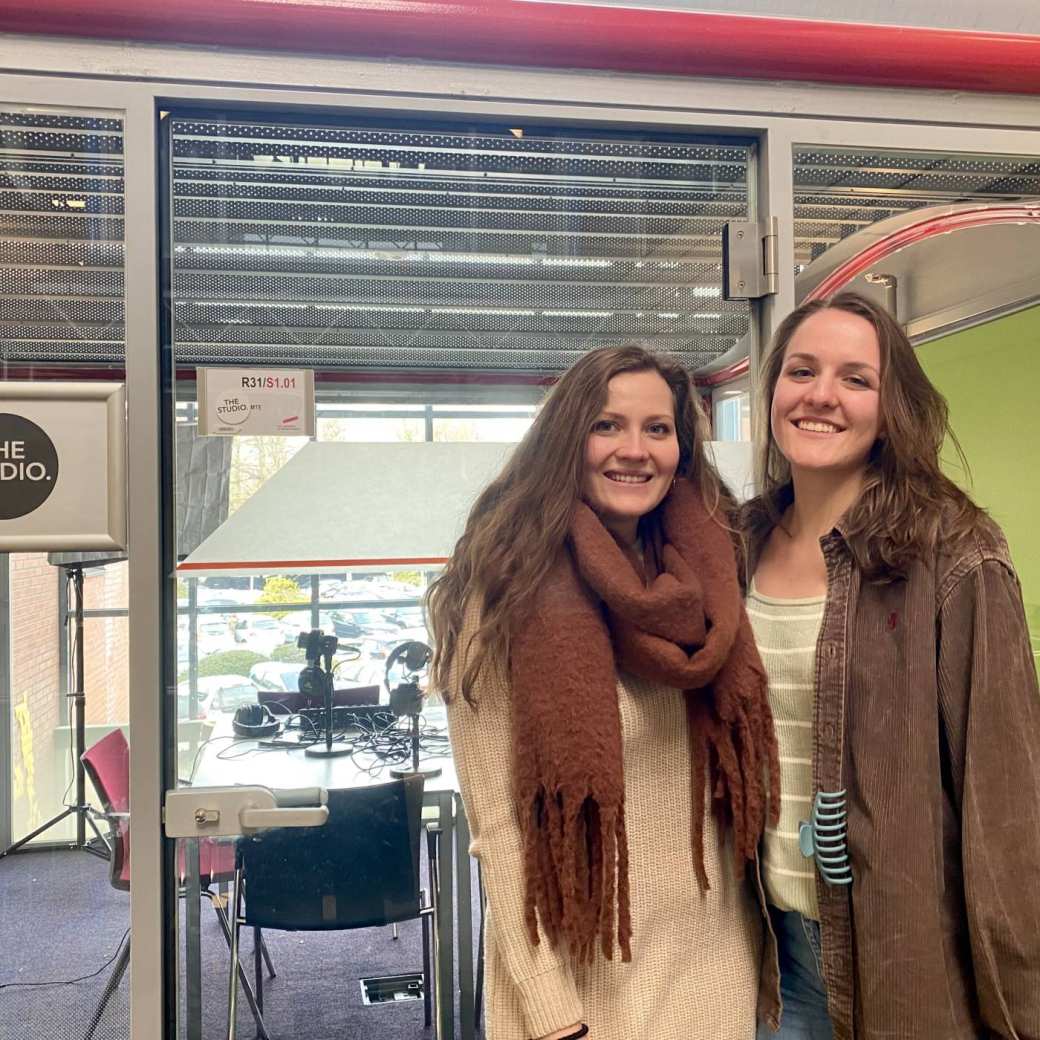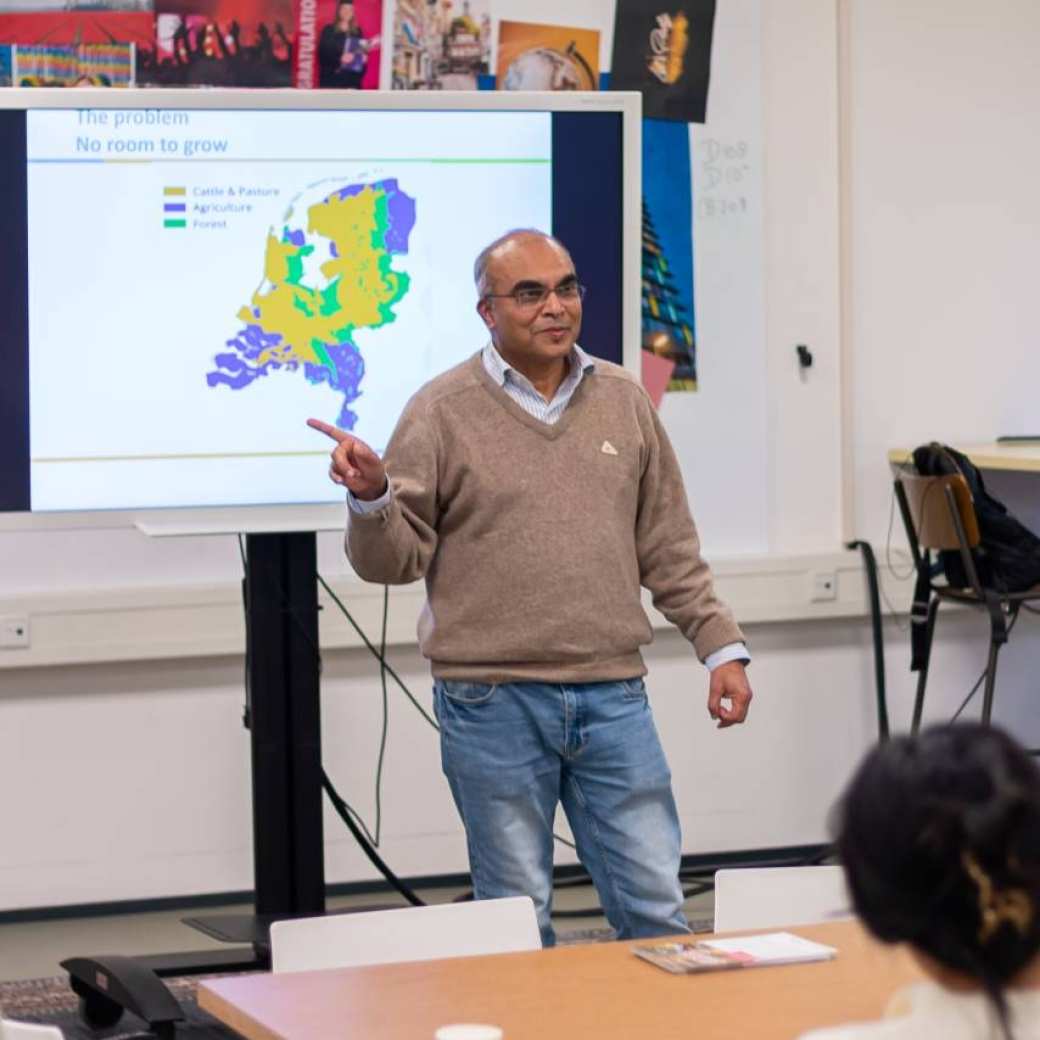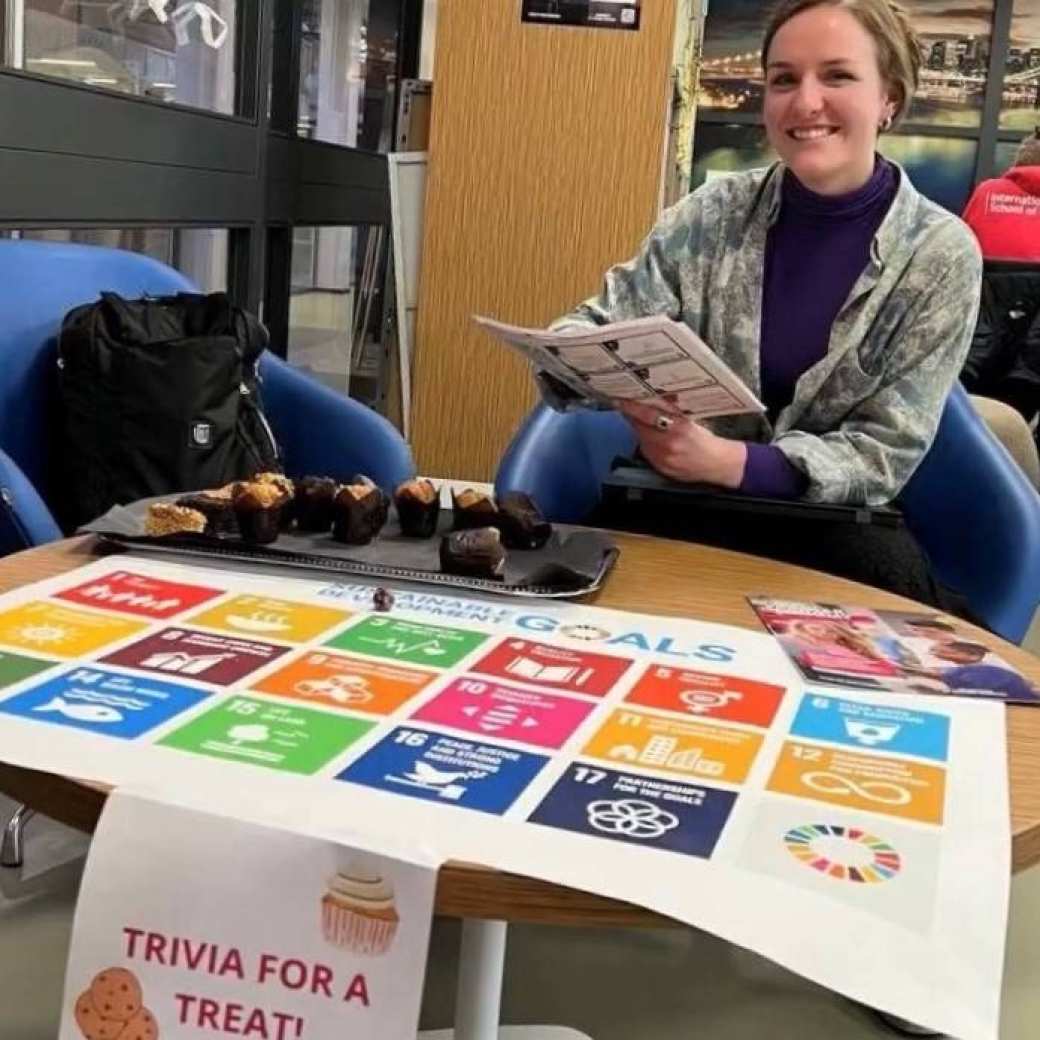Week of Circular Economy
The Week of Circular Economy is recognized in the 2nd week of February in the Netherlands, and at ISB there were activities for students and lecturers.
A Circular Economy describes a cycle in which "materials and products can be reused or recycled and thus remain in the economy for as long as possible" (UNESCO).
The Week of Circular Economy set an example for how everyone is a change agent in the transition to a more sustainable future. Check out this outline of the activities of the week

Do you know how much you impact the environment?
Measuring your carbon footprint is an important step in understanding the impact of your daily activities on the environment. Knowing the amount of greenhouse gas emissions you are responsible for means you can identify areas where you can reduce your carbon footprint and take action to mitigate your impact on the environment. This can include simple changes like reducing your energy consumption and using public transportation or more significant lifestyle changes like switching to renewable energy sources or adopting a plant-based diet.
How will you reduce your carbon footprint?

What is the Circular Economy?
In this podcast, current master's student, Veerle Elings, and ISB colleague Angela Piccioni answer all the burning questions about the circular economy, and what you would gain from having a Master's degree in the topic.
Whether you're considering pursuing a career in sustainable business practices, or just curious about the field, this podcast is a must-listen.

The role of the Global Citizen in The Circular Economy
How can we lead the shift towards a more sustainable world?
Dr. Ingrid Van Rompay-Bartels presented her model of Global Citizenship, inspiring attendees to take a closer look at the role they play. A global citizen considers the impact of their actions, on the planet and on the livlihoods of others.
Ashok Sawant shared two case examples about his experience with supply chain importing and exporting milk, and how new innovations created positive change for the planet and for industry profits.

Trivia for a Treat
Students and lecturers had the opportunity to answer a trivia question about one of the Sustainable Development Goals. Players would roll a 20-sided dice, and would answer a question about the corresponding Sustainable Development Goal. Fresh muffins were given to those who participated!
The activity was a hit, and introduced the game to HAN ISB as a new activity for the ISB Community.
